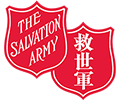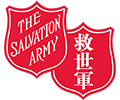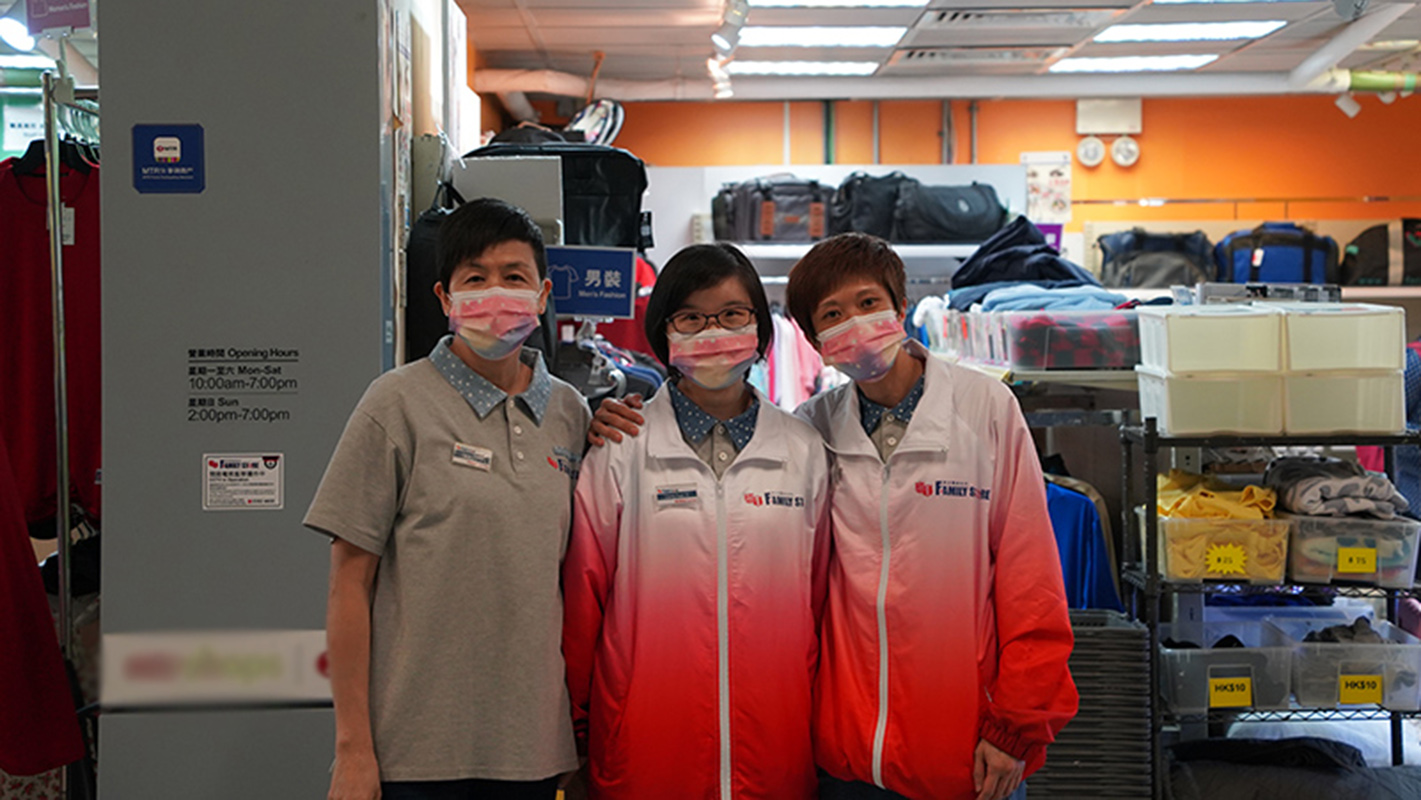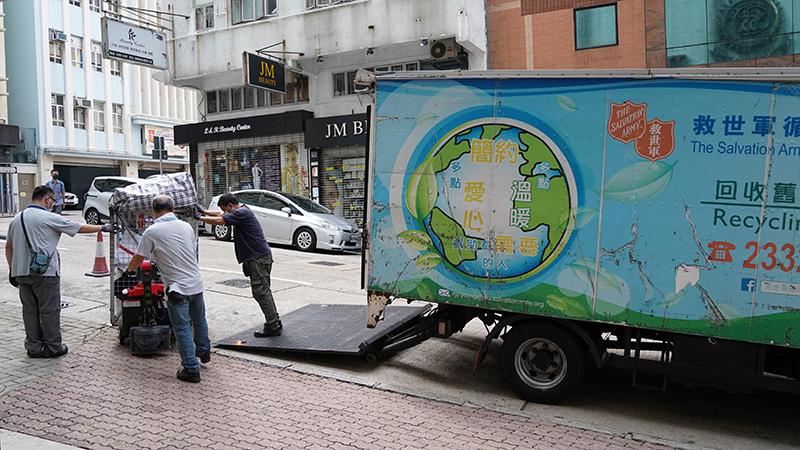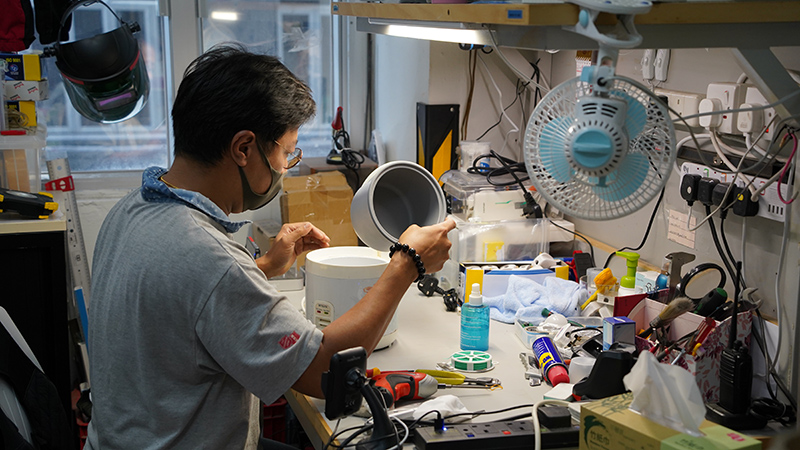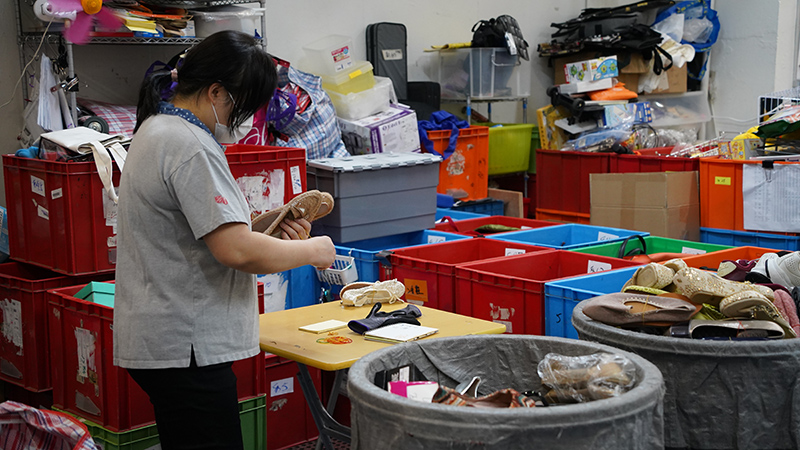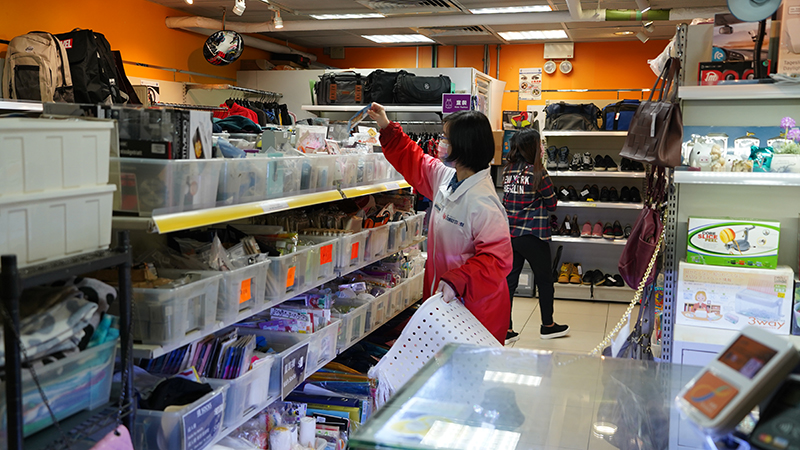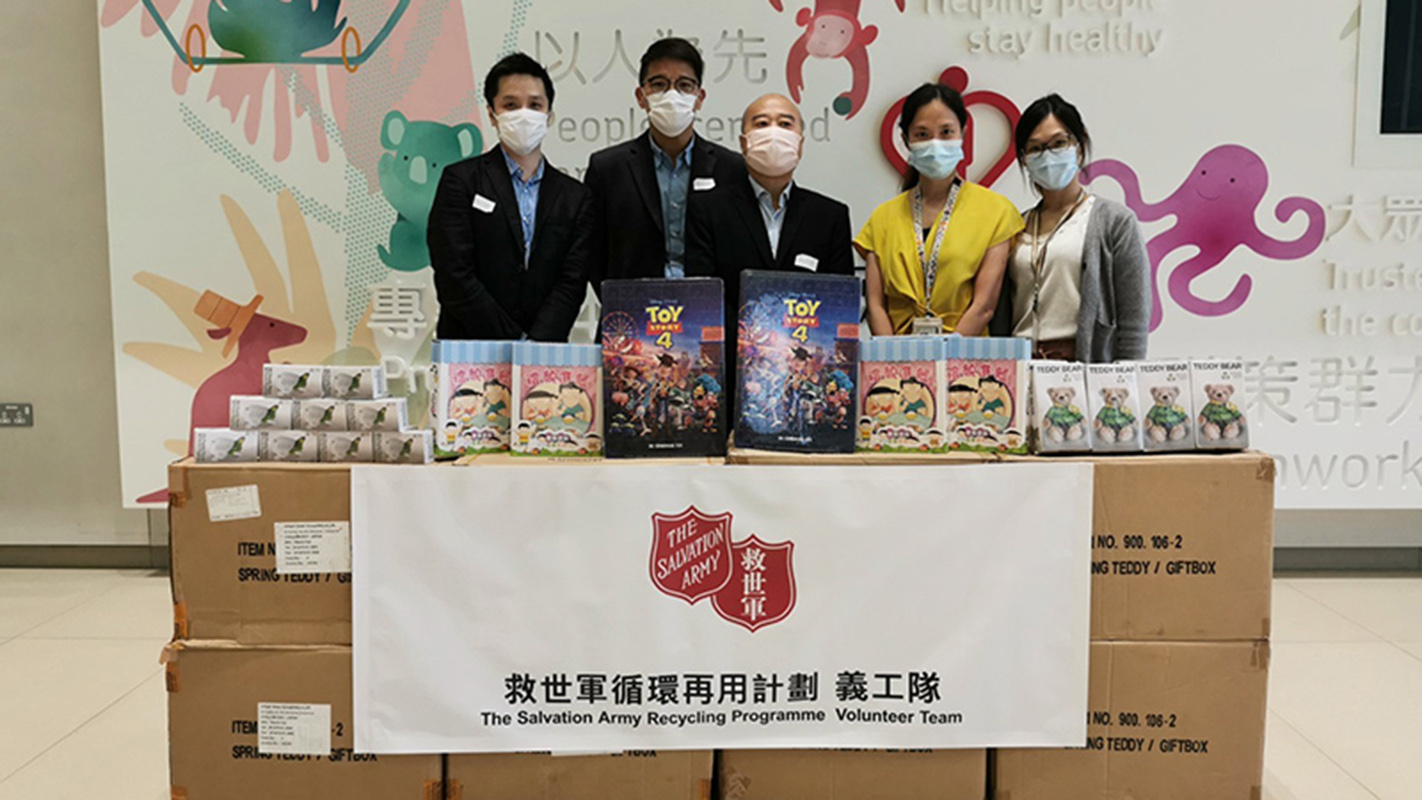When we talk about the Recycling Programme of The Salvation Army, the relatively known part may be the 17 Family Stores in Hong Kong and Macau and the collection points located across all districts. But we may not know so well about how exactly the donated goods are processed on their way finding new homes. This time let us introduce the different units of the Recycling Programme and tell you more about the whole recycling process!
The first stop: Collection points
The Recycling Programme often works with various estates, schools, corporations and community groups to organise recycling campaigns. Currently the Programme has over 200 collection points across Hong Kong and Macau. The donated goods will be collected daily by the Programme’s vehicle fleet and sent to our Logistics Centre for further processing.
The second stop: Logistics Centre and warehouse
Once the goods arrive the Logistics Centre, they will be weighted and then sorted and checked.Small electronic appliances will be thoroughly checked by certified electricians to make sure they have no missing parts and havecomplied with the safety standard. The appliances will then be re-packed and wait for the delivery to Family Stores. It is indeed challenging for our staff to process over 3,000 tons of donated goods per year. It will make the recycling process much more efficient if all of us first check if the goods are recyclable and clean them before putting them for recycle!
The third stop: Family Stores
After the goods arriving the Family Store, our colleagues in the Store will sort and put them on shelves according to the instructions of the Store Manager. The goods are then for sale at relatively low prices.
The team in each store may be small but our staff members work in great harmony. Each team has also built up great relationships with neighours and customers in the community.
Family Stores create job and training opportunities for mid-age women and the underprivileged community. Currently, some family stores have provided opportunities to people with rehabilitation needs. For instance, The Shatin and Tuen Mun Family Stores are stores designated as a platform of on-job training and employment training for trainees of Heng On Integrated Vocational Rehabilitation Services and other disabled through referral. The training in Family Store enhances their independent working ability and customer communication skills, which help them reintegrate to society. The store in Nam Cheong has hired hearing-impaired people and provide them with job training. In addition, the stores also generate net revenue that can be used for the promotion of The Salvation Army community services.
Besides through the Family Stores, donated goods can also find their new homes through the redistribution arrangement by social workers to underprivileged groups such as elders living alone, homeless, ex-offenders and those receiving social security assistance. In 2020, toys donated by well wishers were sent to young patients in children hospitals through the Recycling Programme.
The Recycling Programme has been serving Hong Kong for over 60 years. Besides the keen promotion of ‘waste reduction/recycling’ and bringing new lives to used or remaining goods donated by the public and corporates, we also regard “charity/social care” as an important mission of the Programme. Through running a social enterprise in the form of Family Stores, the Programme promotes green shopping and provides employment support and daily supplies for those in need.
More stories: https://salvationarmy.org.hk/information-centre/publications/army-scene/?lang=en
For more information about our Recycling Programme, please visit:
https://salvationarmy.org.hk/our-work/recycling-programme/
